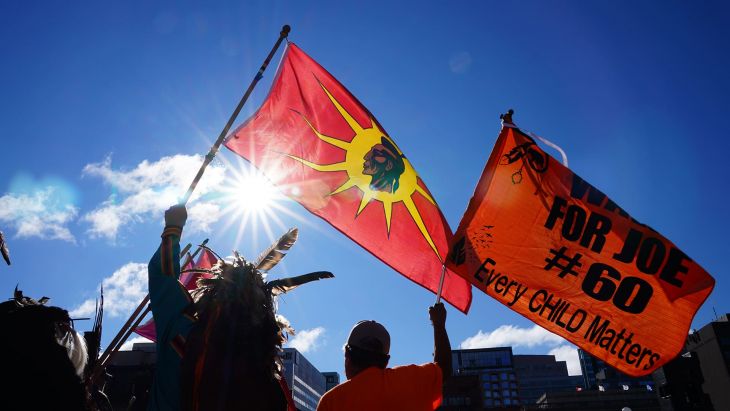I am writing this article on September 30th, the National Day of Truth and Reconciliation with indigenous people in Canada.
On this new national holiday Canadian descendants of the settlers or “settler society” are invited to reflect upon the injustices committed against indigenous people throughout our history, especially the residential school system established in the 19th century to separate indigenous children from their families and cultures – a tragedy that led to thousands of deaths and generations of indigenous survivors emotionally and culturally displaced.
And this led me to thinking, we must remember the past and honor the victims.
But we should also reflect on where we want to go from here and how we will get there.
Nothing can be done to change the past.
All that we can do is change the present to affect the future.
And where are we now?
What do indigenous people want? How do they effectively communicate this to settler society so that we can all understand, a national dialogue can occur, and solutions be found?
To date, I have no grasp of the concrete demands of Canada’s indigenous peoples.
I would like to see a list of ten concrete outcomes that indigenous people would like to achieve with precise definitions of each.
Do they want territorial independence? Do they want better education and health care? Do they want to establish their own economic base so that their peoples can engage in the global economy while retaining their identity and culture? Do they want to be part of Canada? Do they want to continue to live in remote areas where the cost of importing staple goods is beyond their economic capability? Do they want self-governance without settler supervision? Is it feasible to expect Canadian taxpayers to fund indigenous economies with no say in how the funds are administered? Can self-government bring good governance with strong investments in education to give indigenous people the tools that they need to compete in a global economy? Can mainstream society build the bridges required to make indigenous populations feel at home in a multicultural world? Can indigenous people effectively use technology to both meld with the global economy yet maintain their languages and cultures alive?
The list goes on.
Do indigenous people want to pursue victimization or empowerment?
To the uninformed and on the outside like me, it seems that conversations continue to spin in circles with little real progress being achieved.
Awareness and education are fundamental to achieving the beginning of a dialogue.
Settler society must understand the historical trauma of indigenous people being dispossessed from their land and way of life. Of the impact on their bodies of alcohol and drugs to numb the pain brought around by these traumas and the concomitant sense of hopelessness that this brings. And the effect of a global society that appears to have no room for them.
Indigenous people must realize that they must adapt to meet the challenges of the present and the future. All societies are undergoing a massive transformation accelerated by both technology and COVID 19. This applies to indigenous populations as well. They cannot not remain wedded to their ways and expect to survive and thrive.
Indigenous peoples have much to teach us about philosophy and spirituality. About respect for nature and the environment. About the limits of a consumption-based economy in a world of limited resources and fragile ecosystems.
Is settler society humble enough to recognize that we can learn from indigenous peoples and that, in some ways, their ways are better than ours?
Can we teach and learn mutual respect and put aside our prejudices and start afresh, leaving history in its place and creating something better not to address the past but to prepare for a common future in which all are free to enjoy their culture and create a viable modus vivendi?
That is my reflection for this day, a reflection I hope all will undertake to ensure that indigenous societies everywhere find common ground with settler societies and create a more just and inclusive world, one based on respect and acceptance and not power and exclusion.
I look forward to your comments.
Edición: Laura Espejo
Proyectos realizados en el país tendrán incentivo fiscal de 30 % del ISR
La Jornada Maya
El célebre “Jefe Ratonero del Gabinete” ha servido a seis primeros ministros y se mantiene como figura entrañable del poder británico
Ap
El plan urbano propone una visión participativa y sostenible, abierta a ajustes mediante consulta ciudadana
Rosario Ruiz Canduriz
Comparsas, batucadas y carros alegóricos animaron el arranque; saldo blanco y amplia participación ciudadana
La Jornada Maya
